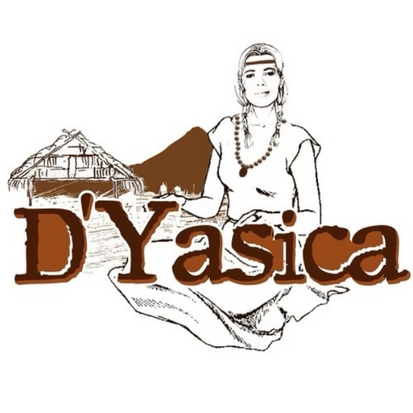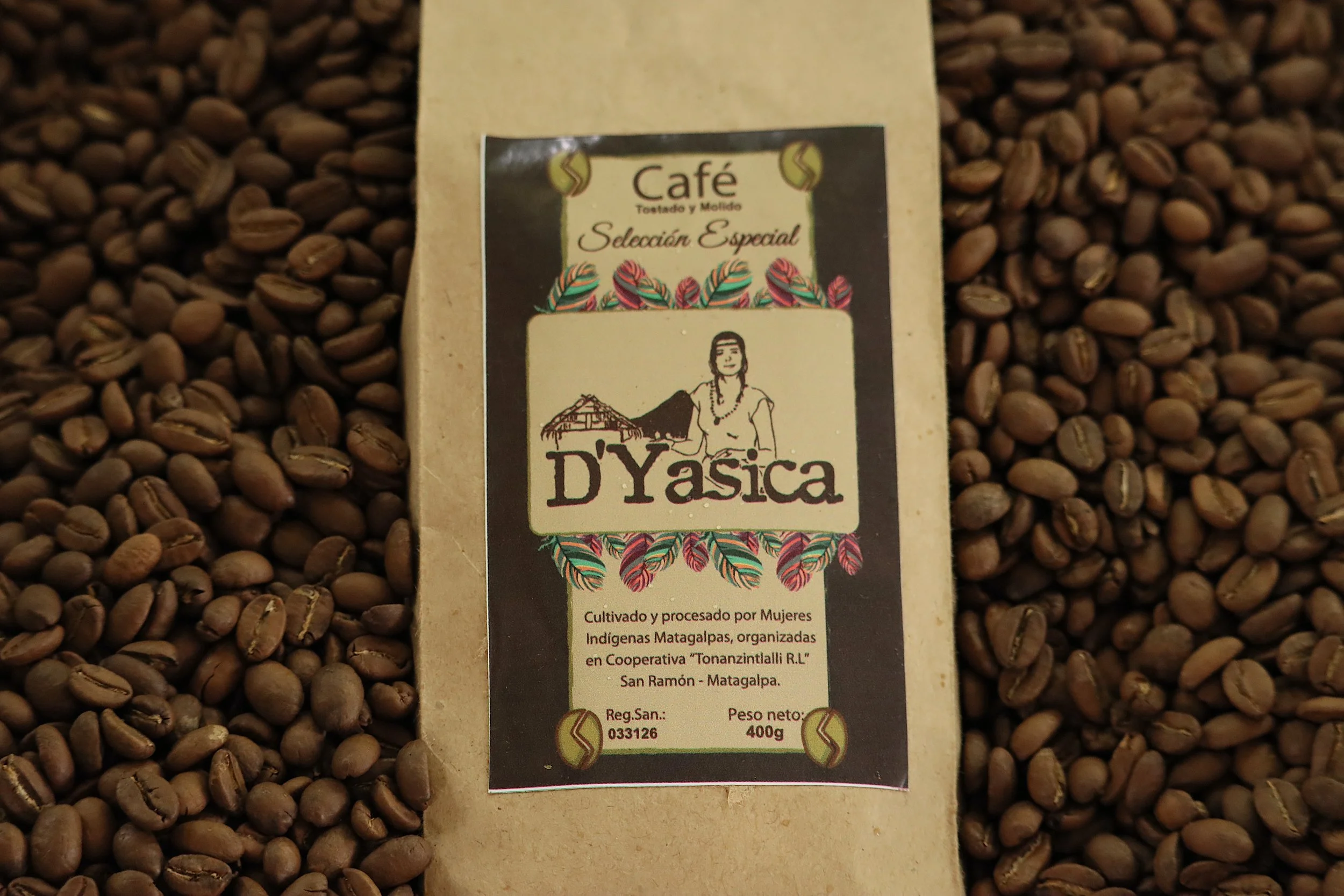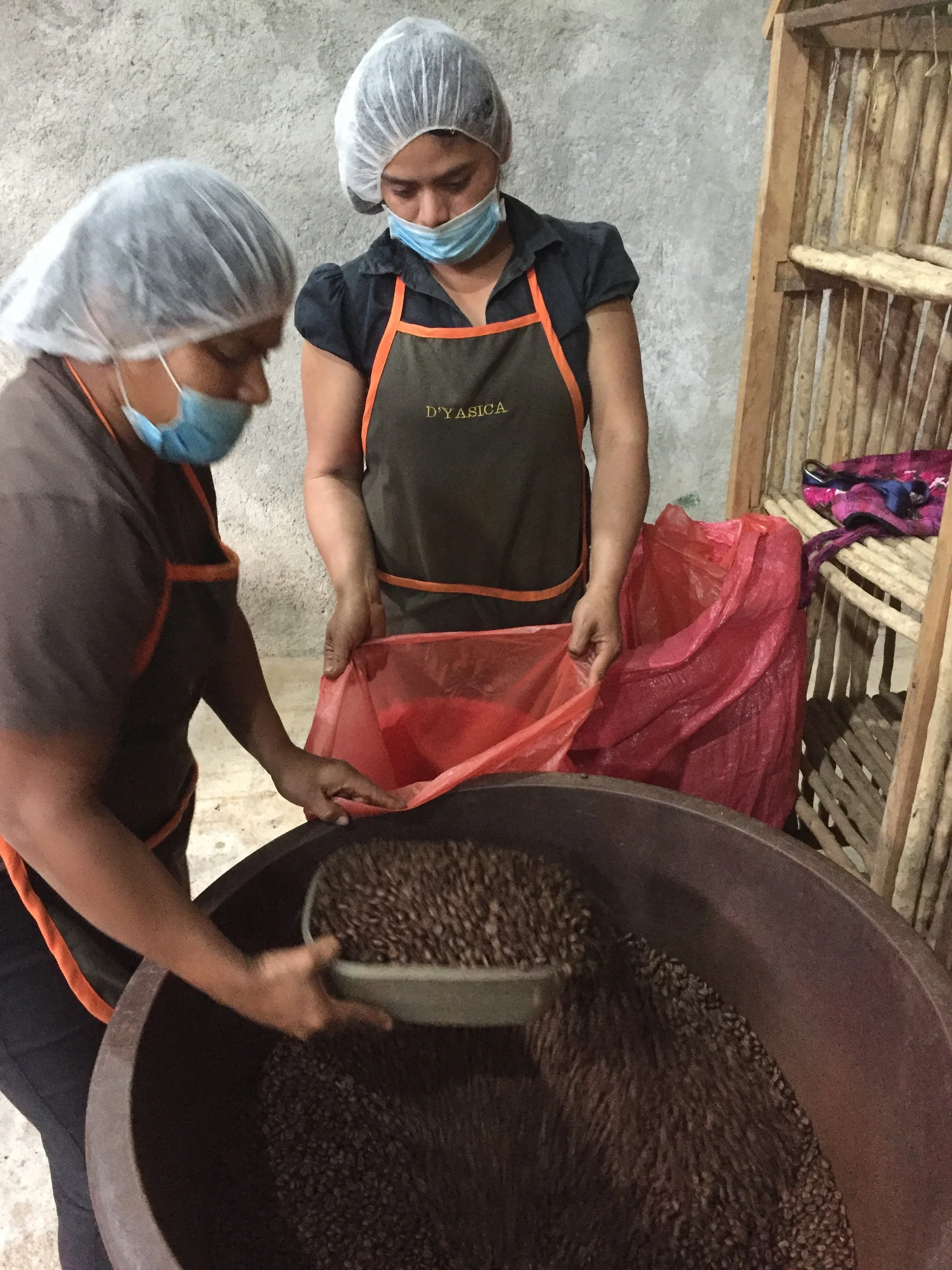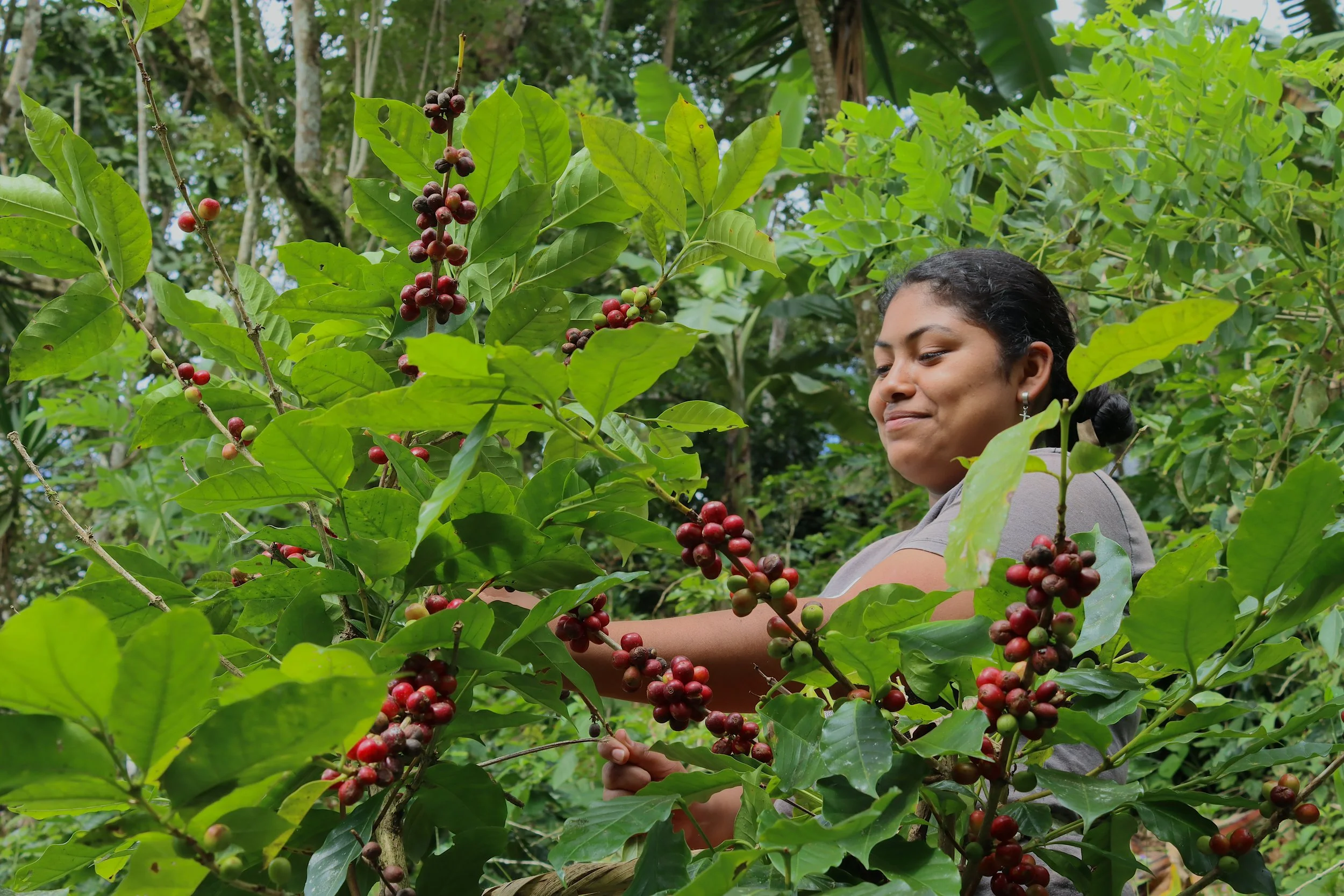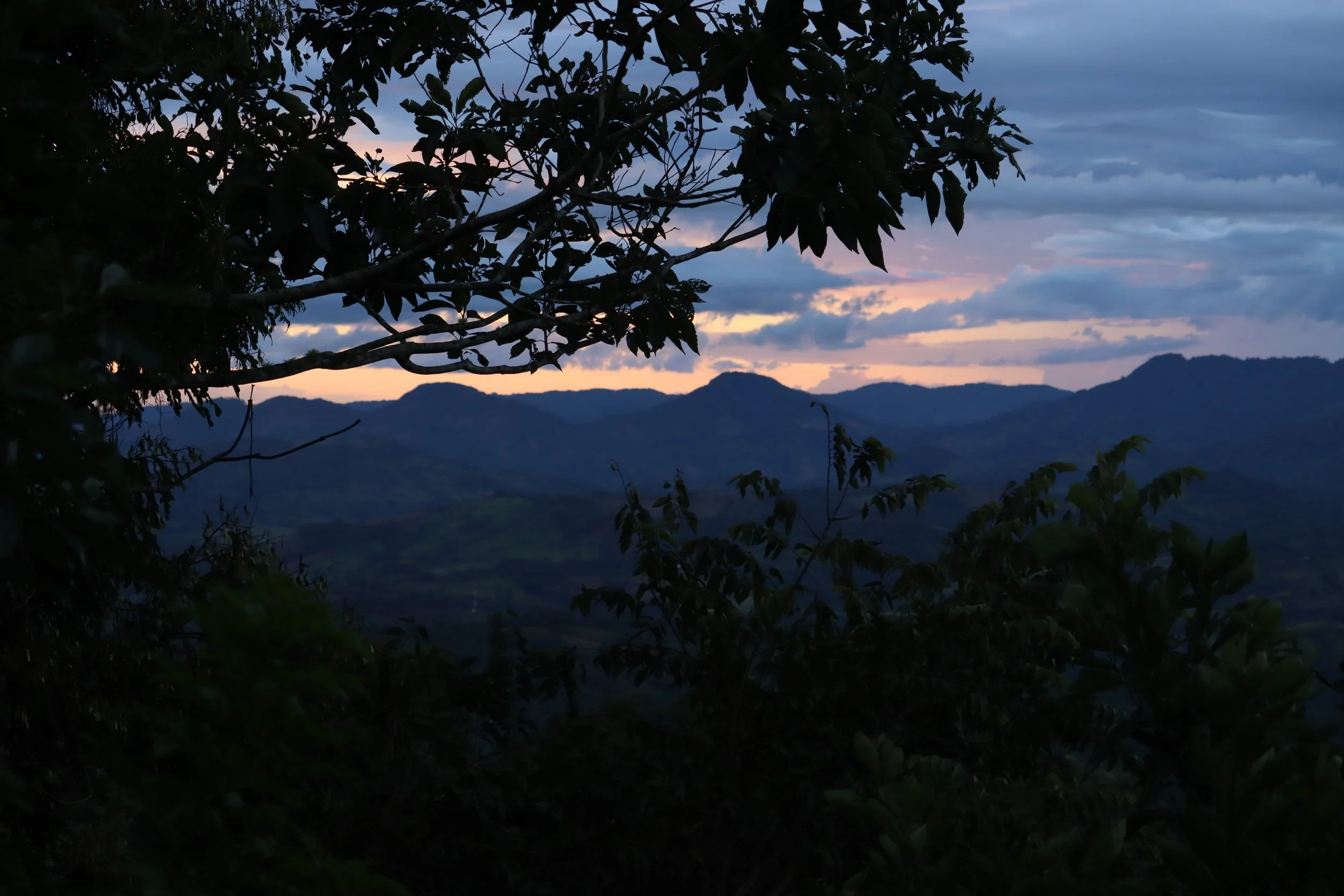
“To regenerate is to heal all the systems of our community.”
- Maritza Centeno González

Cooperativa Tonanzintlalli
Our cooperative is composed of 21 indigenous women. Each of us grows coffee on a personal plot, in addition to taking care of our families. The cooperative purchases about 40% of our individual crops and helps us sell the rest at advantageous prices.
Our work directly benefits our families, about 210 people, and indirectly, our community of 600 people.
The cooperative employs 3 part-time women that have been trained to process and roast coffee. We have a board of directors composed of 5 members of the cooperative and 3 senior counselors. All important decisions are discussed with and decided by all our members at the assembly.

Maritza Centeno González
Maritza grew up in the indigenous community of La Laguna, Nicaragua. At the age of 23, she moved to Managua to earn her college degree. Since 2005, Maritza has represented the indigenous movement of Nicaragua in many events, including the United Nations Permanent Forum. In 2012, she returned to her community to help empower our women economically, politically, and socio-culturally. In 2016 she co-founded Cooperativa Tonanzintlalli. Her greatest happiness is to help our families and to preserve the life of the forest, which gives food to us and to our animal brothers. Maritza has 3 children and lives with her partner.
Meet Our Cooperative
Watch this video to learn more about Cooperativa Tonanzintlalli

Our Story
2012 represents the culmination of a decade of legal efforts by our indigenous Matagalpa community in La Laguna, Nicaragua, that led us to secure the title of our ancestral lands. However, beginning that same year, a fungus known as “roya” or “leaf rust” began to spread through our coffee farms, completely destroying them and leaving our community without an important source of income. Many of the women decided to emigrate to the city and work as domestic employees, which separated them from their families, and sometimes their young children, and created exploitative situations.
In 2013, Maritza Centeno González applied to the UN’s Small Grants Program that funded the planting of 120,000 seedlings in 34 Ha of our land, following organic and diversified agroforestry practices.
In 2016, Maritza led a group of 24 indigenous women to establish “Cooperativa Agropecuaria de Servicios Tonanzintlalli R.L.” with the goal of obtaining a fair income for our work. Initially this meant helping each other with our individual work of growing and selling green coffee but, ultimately, the goal was to add value to our product and sell roasted coffee directly to consumers. Tonanzintlalli means Sacred Mother Earth and our cooperative is committed to upholding the rights of our Mother and our sacred relationship with her and all her creatures.
Our cooperative started with only USD $110. The challenge was huge, but fortunately we obtained funding from Nicaragua’s FONDIN which allowed us to purchase roasting equipment and to start selling our own brand of coffee in 2017, Café D’Yasica.
2018 saw a difficult political situation that took the country to the brink of a civil war and shut down Café D’Yasica’s primary market, tourism. It hasn’t recovered to this day, due to the impact of COVID-19, between 2020 and 2022. But we have been able to help our women partners get better prices for the sale of our green coffee and we have continued to sell roasted coffee in the local market and internationally through small distributors.
Today, Café D’Yasica is recognized as a symbol of our empowerment as indigenous women. We have received national integrity and quality awards and we are proud to share information about our origin and culture in our labels.
One of our most important accomplishments has been the regeneration of the forest habitat. Through planting trees and using agroforestry practices, we are witnessing the return of biodiversity and several species of animals. As a result, we have also regenerated the air, soil, and waters in the areas where we grow coffee, near our homes.
We still have a long way to go on our quest to recover, promote, and defend our ecological and cultural indigenous knowledge, and our economic and political self-determination. We welcome your support.

